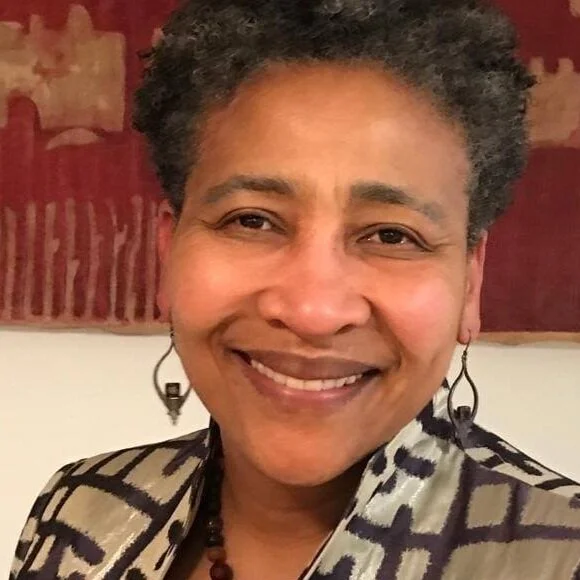Esi Codjoe is one of Canada's most influential legal minds
August 30, 2018
To be included in Canadian Lawyer’s Top 25 Most Influential list is no mean feat.
From several hundred nominations, an internal panel chooses 177 candidates who are listed online for the legal magazine’s readers to poll their votes.
A total of 10,452 people voted and the final list of 25 was selected based on the poll and input from the magazine’s editorial panel.
When Esi Codjoe learnt she was among the esteemed group, she couldn’t help pinching herself.
The daughter of a single parent is the Human Rights Tribunal of Ontario (HRTO) vice-chair.
Her mother, Jamaican-born Monica Codjoe, is the chief nursing executive at Runnymede Health Care Centre.
“I come from a family of immigrants that value justice and service,” said Codjoe who migrated from England at age 13. “For that, my mom is immensely proud because she sees this honour as sort of a symbol of the things that our family believes in collectively. This honour is also important from the perspective of when I think of my grandparents who were very fair and giving. So I kind of see this recognition as a continuation of what my family does.”
The Top 25 list is split into five categories – human rights, advocacy & criminal under which Codjoe was honoured; corporate commercial; change makers; government/non-profits/associations; and young influencers.
The distinguished group includes former Canadian Association of Black Lawyers (CABL) president Frank Walwyn who is considered one of Canada’s top lawyers in the area of corporate and commercial litigation, Alberta’s Premier Rachel Notley and Supreme Court judges Rosalie Abella and Richard Wagner.
“I have known Frank since I was a law student as we both went to Queen’s University,” Codjoe pointed out. “It’s quite an honour to be recognized with him. It’s also always nice to be in the company of Supreme Court judges and people who are that level of the game.”
Completing high school at Turner Fenton Secondary in Brampton, Codjoe successfully pursued her first degree in English & Mass Communications at York University, a law degree at Queen’s University and a Master’s degree at Osgoode Hall Law School.
She developed an interest in law towards the end of high school.
“When I really think about it though, I have – on some level – been always interested in issues since childhood,” Codjoe, who is the CABL secretary and a former Ontario Bar Association (OBA) director-at-large, said. “Growing up in the United Kingdom in the 1980s as racialized and being the child of a single parent was considered to be anathema by some sectors of society. Even though I didn’t necessarily think as a young child that law was a career I wanted to be in, I think the seed was planted back then and it sort of grew by adolescence.”
In her role at the HRTO since March 2017, the results-oriented pragmatic leader has managed multiple hearings, engaged in active adjudication, mediate disputes, write decisions and/or orders, apply & communicate administrative law principles and interpret statues, including the human rights code.
“Once you get the file, you review the content and do the legal research on the issue that’s presented,” said Codjoe who was an Ontario Nurses Association legal counsel for eight years. “Then, it’s about really thinking about what needs to be established based on the case law in that particular case and really thinking and being open to hearing what the parties have to say. I think, ultimately, what makes a good adjudicator from my perspective and the approach I have always try and apply is to be someone that’s fundamentally interested in what people have to say. That may sound trite, but not every decision-maker in every realm of law, I think, is fundamentally interested in hearing the narrative. In order to make good decisions, you have to be interested in the narrative, pay attention to what is said and unsaid and try to, at least, seek to understand without making assumptions. When I don’t understand, I ask questions.
“Part of our tribunal’s approach is that we practice something called ‘active adjudication’. As compared to judges who typically sit silent and listen, part of the exercise that’s expected from our tribunal is that we ask questions and kind of get in there so we can get to the issues. I find that works for me because I have a naturally inquisitive mind. I tend to be a bit of a stickler from a process perspective, but I do always try an approach of being hard on the issues, but soft on people in the sense that you can be polite, respectful and decent while still being tough on the issues about maligning and diminishing people etc.”
Prior to joining the HRTO, Codjoe was an adjudicator at the province’s Landlord & Tenant Board (LTB) which is one of the eight tribunals that comprise Social Justice Tribunals Ontario.
She adjudicated thousands of cases in the 27 months she was with the LTB.
When asked what human rights matters stand out during her tenure with the LTB and the HRTO, Codjoe pointed to a the recent ruling in which the Ontario Human Rights Tribunal ordered a downtown Chinese restaurant to pay a Black man $10,000 as compensation for a rights violation after it required him and three Black friends to prepay for their meals, and a case in which a landlord was found to have harassed an elderly tenant.
“The Chinese restaurant case stood out because of the headlines it received,” she said. “On the other hand, the LTB is the highest volume tribunal in the province and not all landlord & tenants decisions are reported. In this one particular case that stands out for me, the landlord basically burst into the woman’s unit unannounced. The level of impact on her, in part because she’s elderly but also because of culture and her own particular background which, on some level, I understood, enabled me to see things she was saying and how significant the impact was on her. It felt good to be able to give her a remedy that recognized there was an infringement of her privacy.”
In Codjoe’s landmark ruling against Hong Shing restaurant, she concluded that the restaurant staff had violated Section 1 of the province’s human rights code that guarantees equal treatment when accessing goods, services and facilities when they treated the defendant – Emile Wickham -- as a ‘potential thief in waiting’. His mere presence as a Black man in a restaurant was presumed to be sufficient evidence of his presumed propensity to engage in criminal behaviour.”
Patricia DeGuire, a former HRTO vice-chair, said the decision sends a clear message that racism will not be tolerated.
“I can tell you that racial discrimination is very difficult to prove,” the CABL co-founder said. “It is very important that when these cases appear before the tribunal, the issue of racial discrimination, when it’s established, should be significantly sanctioned so that people get the message. Racism is something that Canadian society is afraid to tackle. So it’s vital when an adjudicator sees it, calls it for what it is and imposes sanctions to send a message to the public that this kind of behaviour isn’t acceptable. It’s antithetical to Canadian values and I think the people that voted for Esi are actually saying that.”
Never shy to dole out credit where it’s due, Codjoe acknowledged she’s standing on the shoulders of giants, including DeGuire, Aon North American chief compliance officer Terrie-Lynne Devonish, Koskie Minsky LLP employment law group head Arleen Huggins who is the Women’s Law Association of Ontario 2018 President’s Award recipient, HRTO associate chair & adjudicator Yola Grant and arbitrator/mediator Kim Bernhardt.
“I am always a great believer in saying nobody does it by themselves,” she said. “I don’t care who you are. It’s whether or not they acknowledge it.”
Huggins said Codjoe is extremely deserving of the recognition.
“Esi is a very accomplished adjudicator and practitioner in her areas of expertise,” she said. “As well, she has contributed significantly to the Black legal community through her mentoring of Black lawyers, her role on the CABL board and generally through her involvement with the OBA.”
Atrisha Lewis, an associate in McCarthy Tetrault’s litigation group in Toronto, nominated Codjoe for the Canadian Lawyer’s honour.
“It was important for me to nominate Esi because she’s doing important and ground-breaking work at the Ontario Human Rights Tribunal and she deserves to be recognized for that,” said Lewis who was called to the bar five years ago and is a 2018 Precedent Setter Award winner. “Not only is she a strong adjudicator, but she’s extremely generous with her time and she reaches back to young lawyers. She is successful, but true to her values and identity and very inspirational. She is also very humble and I think it is incumbent on me as a mentee who has benefitted from her mentorship to sing her praises.”






